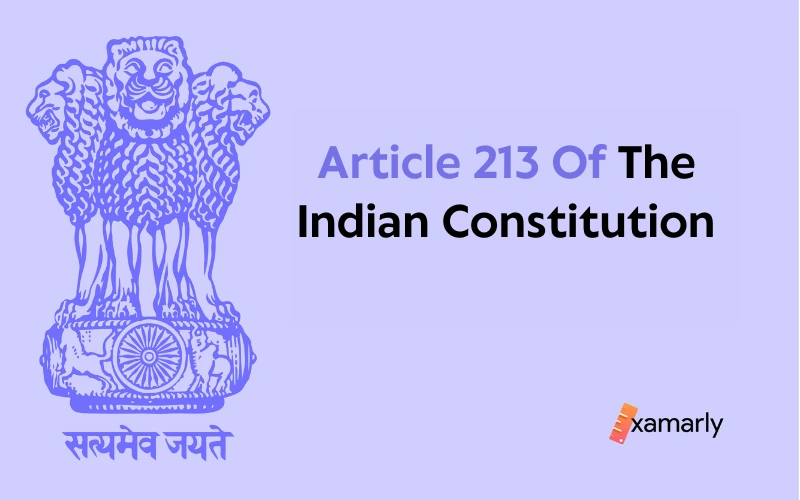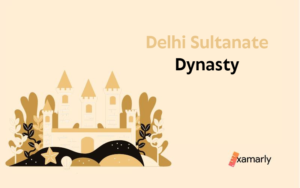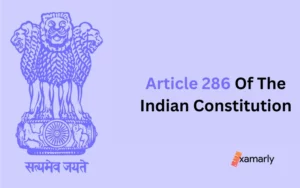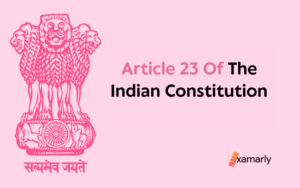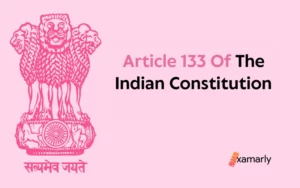Article 213 of the Indian Constitution addresses the authority of the Governor to issue ordinances while the Legislature is not in session.
Similar authority was granted to the President under Article 123 to issue any ordinance during the recess of Parliament.
Article 213 is covered in Chapter IV of Part VI of the Indian Constitution. Chapter IV discusses the legislative power of the State Governor and Part VI is entitled to discuss the provisions around “The State.”
This page provides a piece of valuable information regarding Article 213, which will assist you in comprehending the provisions that are outlined in the clauses and subclauses of the said Article.
What Is Article 213 Of The Indian Constitution?
- If at any time, other than when a State’s Legislative Assembly or, in the case of a State with a Legislative Council, other than when both Houses of the Legislature are in session, the Governor is convinced that conditions exist necessitating immediate action, he may promulgate such Ordinances as the situation seems to him to necessitate at that time:
With the proviso that the Governor shall not promulgate any such ordinance without first receiving instructions from the President if –- (a) a Bill with the same provisions had been required under this Constitution to have prior approval from the President before being introduced into the Legislature; or
- (b) he had determined it necessary, he would have reserved a Bill with identical provisions for the President’s consideration; or
- (c) If the identical provisions had been included in a State Act of the Legislature, it would have been void under this Constitution unless it had been reserved for the President’s consideration and obtained his consent.
- Every Ordinance issued in accordance with this article shall have the same legal effect as an Act of the State Legislature approved by the Governor, but each such Ordinance—
- (a) must be presented either to the Legislative Assembly of the state or, in the event that the state also has a Legislative Council, to both Houses of the state’s legislature. And each such Ordinance must expire six weeks after the reassembly of the Legislature, or earlier if a resolution disapproving it is approved by the Legislative Assembly and approved by the Legislative Council, if any, upon the passage of the resolution or, as the situation may be, upon the resolution’s approval by the Council;
- (b) may be revoked by the Governor at any moment.
Explanation— For the objectives of this clause, the timeframe of six weeks will begin counting down from the later of those dates when the Houses of the Legislature of a state that has a Legislative Council are called to reassemble on different dates.
- It shall be null and void if and to the extent that any provision of an Ordinance adopted pursuant to this article would not be valid if established in an Act of the State Legislature approved by the Governor:
Provided that, for the intents of the provisions of this Constitution pertaining to the effect of an Act of the Legislature of a State that conflicts with an Act of Parliament or with an existing law with respect to an item specified in the Concurrent List, an Ordinance issued under this article in accordance with the President’s directives must be regarded as an Act of the State Legislature reserved for the President’s consideration and approved by him.
Which Amendment Has Revised Article 213?
In Article 213, a new clause (4) was added by the 38th Amendment Act, which states that the Governor’s satisfaction with an Ordinance is final and cannot be contested in any court for any reason. Nevertheless, the Governor’s satisfaction to bring an ordinance into effect is now justiciable thanks to the 44th Amendment of the Indian Constitution, which overturned the previous provision.
When Article 213 Came Into Existence?
Discussion regarding the draft of Article 187 (Article 213) took place on June 14, 1949. It outlined the extent of the Governor’s authority to pass ordinances as well as the parameters within which that authority must operate.
Some of the revisions are put forward to change some provisions or clauses in the debate but without discussion, all of the amendments were denied. The 14th of June in 1949 was the day that Draft Article 187 was approved.
Judicial Safeguards
- In DC Wadhwa v. the State of Bihar(1987), it was claimed that the executive’s ability to issue ordinances should only be utilized in extraordinary circumstances and not as a replacement for the legislative branch’s ability to enact laws.
- The Supreme Court ruled in Krishna Kumar Singh v. the State of Bihar that the power to issue ordinances is not an unqualified grant but rather is subject to the court’s finding that there are exigent circumstances requiring prompt action.
Article 213 And Article 123
The President has the authority to enact laws while Parliament is in session thanks to Article 123 of the Constitution. Despite being only temporary laws, these ordinances have the same authority and impact as a Parliamentary Act. Similarly, when the state legislative assembly (or one of the two Houses in states with bicameral legislatures) is not in session, the Governor of that state may enact ordinances pursuant to Article 213 of the Constitution.
The President and Governor’s most significant legislative authority is their ability to enact ordinances. They have been entrusted with the responsibility of handling unexpected or time-sensitive matters.
Conclusion
In accordance with Article 213, the government may pass an ordinance when neither house of the legislative assembly is in session if the situation requires it. The Governor, however, is not permitted to enact an ordinance in two situations which are as follows:
- if the ordinance contains any provisions that, if it were a bill, the governor would have retained for the president.
- if the State Legislature passed a law with comparable provisions, it would be invalidated without the President’s approval.
FAQs
Which Amendments Have Amended Article 213?
A new clause(4) was added to Article 123 by the 38th Amendment Act, declaring that the Governor’s satisfaction during the promulgation of an Ordinance was final and not subject to challenge in any court. Nonetheless, as a result of the 44th Amendment to the Indian Constitution, which nullified the prior provision, it is now possible to hold the Governor accountable for bringing an ordinance into force.
Which Article Deals With An Ordinance Making Power Of Governor?
The power of the governor to enact ordinances is covered in Article 213 of the Indian Constitution.
What Article 213 Deals With?
The authority of the Governor to promulgate ordinances is discussed in Article 213 of the Constitution.
What Is Clause 3 Of Article 213?
Clause 3 of Article 213 states that any provision in an ordinance passed in accordance with this article that would not be upheld by a state law passed by the legislature and proclaimed by the governor is void and unenforceable.
What Does The 38th Amendment Mean?
The President’s proclamation of an “emergency” was invalidated by the 38th Amendment Act of 1975 to the Indian Constitution. The 38th Amendment Act gave the state the capacity to restrict the core fundamental rights of its inhabitants during times of declared emergency, and it did so by expanding that authority.
What Does the 44th Amendment Mean?
The 44th Amendment Act of 1978 was passed to ensure that the populace has a meaningful role in determining the type of government they will live under and to provide adequate protections against the inclination of a transitory majority to take over fundamental rights in the future.
When Governor May Promulgate Ordinance?
The power of the Governor to enact ordinances when the Legislature is not in session. This provision is articulated under Article 213 of the Indian Constitution.


